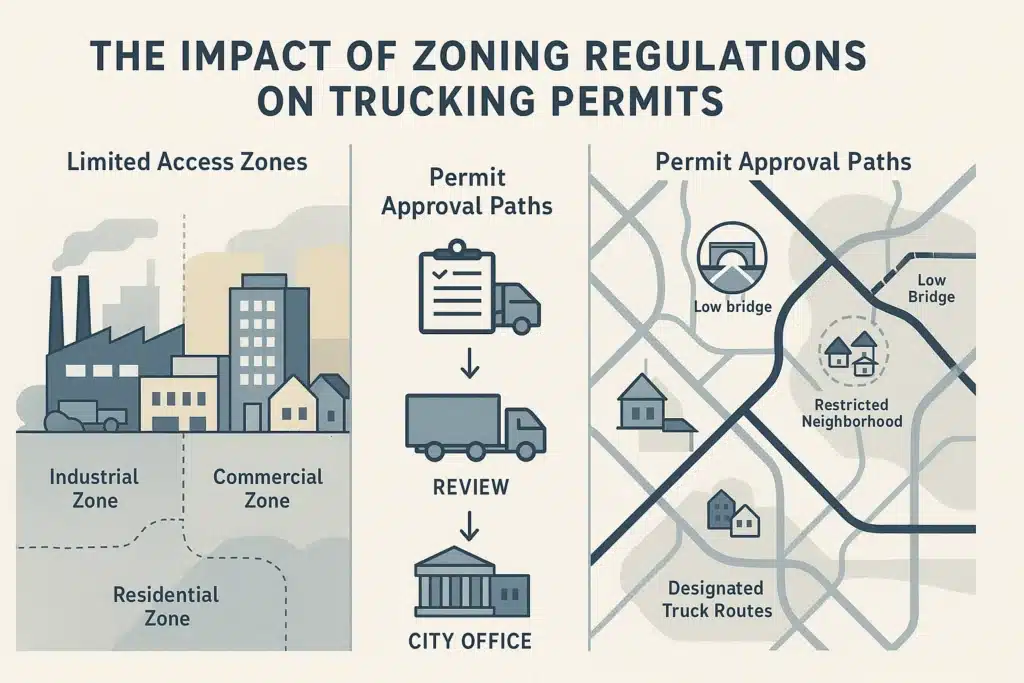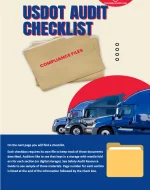Trucking permits can be confusing, especially if you are new to the industry. Even small errors in a permit application can lead to costly delays, fines, or stalled operations. With the right preparation and support, you can avoid common mistakes in permitting services and keep your company running without interruptions.
Understanding the Impact of Zoning Regulations on Trucking Permits
Zoning regulations are one of the most common obstacles in the permitting process. Every city, county, and township has rules that determine where specific businesses can operate. For trucking companies, these rules often place limits on where you can legally park trucks, build a maintenance yard, or open a dispatch office. Unlike other types of businesses, trucking facilities are usually classified under stricter categories, which makes finding a compliant location more difficult.
Overlooking zoning regulations is a frequent cause of permit delays. Many carriers assume that once they meet state or federal requirements, the local regulations will fall into place automatically. In reality, zoning issues can block a permit application from moving forward at all. A property that looks ideal for trucking may not meet the code compliance standards of the municipality, leading to denied permits or even forced relocation after operations begin. For many carriers, these issues stall a new project before it can get off the ground.
Complicating matters further, zoning laws vary widely. What works in one county may not be acceptable in a neighboring city. Even small differences in rules about truck parking, signage, or construction requirements can stall the permit process. Some municipalities enforce municipal zoning ordinances that set strict limits on land use, building height, parking, and signage. If these differences are not addressed at the start, they can create costly setbacks for new and expanding carriers.
To avoid these pitfalls, research zoning laws before beginning your permit application. Keep property records organized, verify whether your intended use is allowed, and maintain open communication with local boards. Addressing zoning regulations early in the permitting process helps prevent unnecessary delays and keeps your business on track.

Avoiding Common Mistakes During the Permit Application Process
Most permit delays happen because of paperwork errors. Simple mistakes can push back your approval for weeks.
Common mistakes include:
Incorrect or incomplete company details
Missing signatures on permit applications
Expired insurance certificates or filings
Submitting outdated or missing documents
You can reduce these issues by preparing a checklist before submission. Include all required forms such as proof of insurance, lease agreements, BOC-3 filings, and up-to-date operating authority. Always double-check every field on paper and digital forms. Having a second reviewer can also prevent overlooked errors.
Simple checks every applicant can use to prevent delays and denials
Establishing a structured review process before you submit your paperwork helps prevent denials and time-consuming corrections. A few effective habits include:
Verifying business addresses, company ownership records, and insurance coverage limits
Reviewing every form line by line to confirm nothing is missing
Creating a checklist of required attachments such as environmental statements, zoning approvals, or updated authority filings is one of the best ways to review application requirements before submission
Reading all agency instructions carefully, since requirements vary by jurisdiction
Having another person review your application to catch mistakes you might overlook
Taking the time to build these checks into your process helps ensure applications are accurate and complete the first time. Careful review reduces application mistakes and avoids permit submittals being returned for corrections. This is especially important for independent drivers managing their own authority, since missing even one filing can create costly delays.
By slowing down and following a consistent permitting process, you minimize the risk of permit delays and denials. Treat every permit application as a detailed compliance step rather than just paperwork. This proactive approach saves time, lowers stress, and keeps your business prepared for approval.
Navigating Local Regulations for DOT and State Compliance
Meeting federal DOT and state standards is only part of the permitting process. Local regulations often create an additional layer of complexity. Counties, municipalities, and townships may impose their own codes for truck parking, signage, noise limits, or environmental controls such as runoff and emissions. These rules may differ even between neighboring jurisdictions, making code compliance harder than many carriers expect.
Overlooking local regulations is a common mistake that can lead to permit delays even if your permit application meets state or federal requirements. For example, an operation that passes state review may still be stalled at the city level due to zoning restrictions or licensing rules.
To prevent these setbacks, include local research in your permitting process. Create a compliance calendar, track updates from local offices, and confirm requirements before submitting your permit application. Addressing local regulations early ensures smoother approvals and fewer unexpected delays.
Effective Communication with the Building Department
Miscommunication with permitting departments often leads to unnecessary setbacks. Questions about forms or missing information can create weeks of back and forth if you are not proactive.
To keep things moving:
Confirm you are using the most current permit forms
Keep detailed notes from every call or email
Assign one point of contact for all communications
Build professional relationships with department staff
Maintaining consistent communication with the building department is one of the simplest ways to avoid unnecessary permit delays. By confirming requirements before you file, documenting every interaction, and assigning one point of contact, you reduce the risk of errors and confusion in the permitting process.
Treating the building department as a partner helps ensure your permit application is processed smoothly and in compliance with local codes. Good communication not only prevents setbacks but also shows regulators that you are serious about code compliance and committed to keeping your business fully aligned with permitting requirements.
Get Support from Truckers Authority
At Truckers Authority, we help carriers and owner-operators avoid delays by managing permit applications and ongoing compliance. Our services include USDOT and MC number applications, BOC-3 filings, UCR registration, Form 2290, and state-specific permits and regulatory filings. We also provide business setup assistance and compliance support.
Let us handle the paperwork so you can focus on running your operation. Get your trucking authority today. Contact Truckers Authority for expert help with permits, filings, and compliance.







